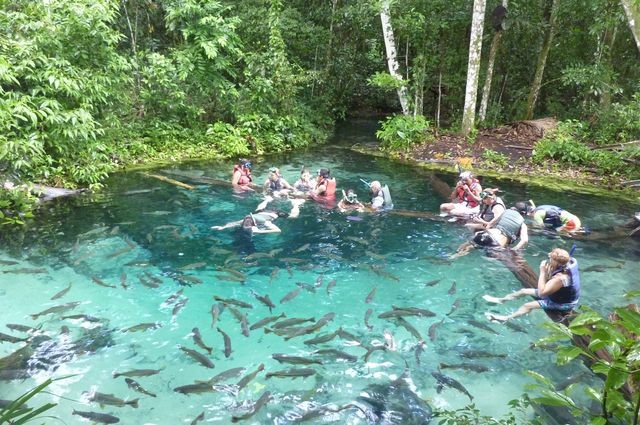Researchers reveal how ecotourism can apparently be detrimental than helpful for animals where in this new study, when humans are too friendly to wildlife, animals adapt to this comfort and security, making them more vulnerable to predators.
Wildlife tourism which involves spending a vacation close to wildlife habitats, is exposing the animals to more opportunities for human interaction. Researchers say that even if this may seem harmless, they add that this may pose a negative and even dangerous effect to the animals.
This new study focuses on how the concept of human presence in ecotourism or nature can alter and ultimately transform the behavior of animals. Scientists believe that this can affect the many aspects of the animals' lives even if they are not immediately observable.
According to author of the study, Daniel Blumstein from the University of California, Los Angeles, these animals apparently interact with humans in a "benign" manner in which they may let down their guard. When the animals begin to feel comfortable with humans, the animals can develop a bold behavior and when real predators arrive, this can result to higher death rates.
Ecotourism is also similar to urbanization or domestication when it comes to habituation, also considered as a type of taming. Evidence shows how domesticated silver foxes are more compliant and less scared due to frequent contact with humans. Tame fish also exhibit bold, dangerous behaviors when they react less toward predator attacks. Birds and foxes observed in the suburbs also appear to be bolder and take a longer time to fly off or flee when there is a predator.
Apart from these unusual animal behaviors, wildlife become complacent, where smaller animals feel safer with the presence of humans that transforms them to act bolder. Animals have limited guard now since they are already adapted to human presence.
This new study may hopefully encourage more research about the interactions of humans and wildlife where it is crucial to know how different animal species react in different situations in the presence of humans and what kind of human interactions are placing wildlife at risk.
This study is published in the journal, Trends in Ecology & Evolution.



























